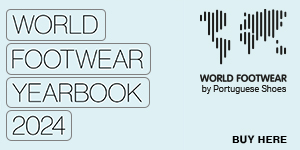A new business model for same-day delivery

Ohi wants to be the partner of small brands competing with Amazon and their one day delivery service. The service is only available in NY and LA for now
Amazon has set the bar high and now is being followed by many giant retailers such as Walmart and Target. They are working with fast deliveries, and in some cases brands and marketplaces are offering same day delivery.
By doing this, such retailers are setting the customer's expectations for ecommerce very high. For small brands, start-ups and niche companies this is an arena in which they struggle to act.
Ohi is a new delivery service offering small businesses what they call "fast and low emission" solutions for their deliveries. The modus operandi is easy: Ohi creates micro warehouses in unused retail spaces in the city (for now only New York and Los Angeles); then Ohi uses software to analyse the data and help brands to stock in accordance and in advance. And the lower environmental impact enters here as having stock across the city avoids plane distribution and the dropping off boxes using trucks. The company is using bicycles and electric vehicles.
The system can also help to reduce packaging. As parcels are not being moved from one location to another, they do not require the traditional cardboard box. Many Ohi customers receive their orders in recyclable paper bags.
Many brands will be attracted to the sustainability calling, but there is another selling point to consider: this could work as a quick and cheap way to reach customers, especially for start-ups and small businesses. With this system, companies and brands might have as little as a single pallet of products in each location, but the combination of multiple brands together gives this model what they call enough “demand density” to make it profitable.
By doing this, such retailers are setting the customer's expectations for ecommerce very high. For small brands, start-ups and niche companies this is an arena in which they struggle to act.
Ohi is a new delivery service offering small businesses what they call "fast and low emission" solutions for their deliveries. The modus operandi is easy: Ohi creates micro warehouses in unused retail spaces in the city (for now only New York and Los Angeles); then Ohi uses software to analyse the data and help brands to stock in accordance and in advance. And the lower environmental impact enters here as having stock across the city avoids plane distribution and the dropping off boxes using trucks. The company is using bicycles and electric vehicles.
The system can also help to reduce packaging. As parcels are not being moved from one location to another, they do not require the traditional cardboard box. Many Ohi customers receive their orders in recyclable paper bags.
Many brands will be attracted to the sustainability calling, but there is another selling point to consider: this could work as a quick and cheap way to reach customers, especially for start-ups and small businesses. With this system, companies and brands might have as little as a single pallet of products in each location, but the combination of multiple brands together gives this model what they call enough “demand density” to make it profitable.











